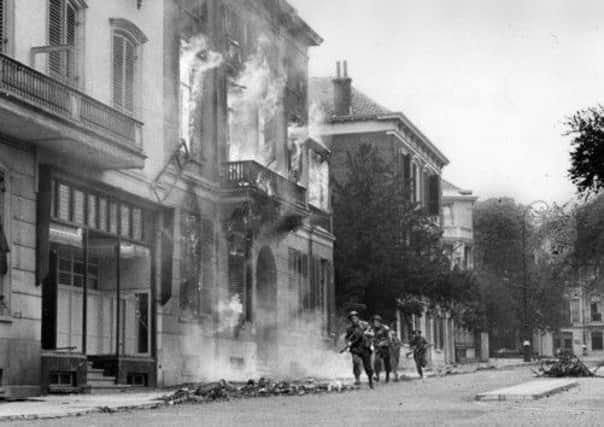Andrew Vine: Lessons from Arnhem for a nation that’s forgotten how to remember


A procession of hundreds of children will make its way solemnly into a cemetery. Every boy and girl, all in their Sunday best clothes, carries flowers and walks quietly across the neatly-trimmed lawns separating the rows of white headstones.
A child will pause before each grave, and then lay their flowers. None will be missed out, and many of the blooms the children place gently on the grass will be of vivid orange, their country’s national colour.
Advertisement
Hide AdAdvertisement
Hide AdAnd then the children will leave the cemetery reverently, to return to their parents and teachers waiting just outside the gates. The adults know exactly how it feels to pay this tribute, for it has happened every September for decades, and they have laid their flowers before these graves as their own parents watched. In time, the children who take part in Sunday’s commemoration will watch as their sons and daughters pay tribute to the men who rest here.
This is the British Airborne Cemetery in Oosterbeek, close to the border with Germany, and it is where 1,759 men who died in the vicious nine-day Battle of Arnhem are buried.
Today marks the 70th anniversary of that battle beginning, when thousands of paratroopers and glider-borne soldiers descended from the sky in an audacious operation designed to shorten the war, only to fall into a German trap. It was one of the hardest-fought actions of the Second World War, and though the British lost, leading to brutal consequences for the Dutch, there is an abiding affection for our country, and our county, in that part of Holland.
Six months afterwards, almost at the war in Europe’s end, it was Yorkshire soldiers of the 49th (West Riding) Division who finally liberated Arnhem and the surrounding towns from nearly five years of occupation. Seven decades on, the mention of being from Yorkshire still elicits an especially warm response from the people who live there.
Advertisement
Hide AdAdvertisement
Hide AdThey have never forgotten, nor will they, and that is why, every September, the young are at the heart of the commemorations on the first Sunday following the anniversary of the battle commencing. The boys and girls so cherished by their families remind the community of the many young men destined never to see those who loved them again, who gave their lives in an effort to free people of whom they knew nothing.
The children of Arnhem, with their flowers, have much to teach us about the nature of commemorations. Anniversaries of war and its terrible human cost crowd in upon us; the centenary of the Great War is just over the horizon next summer, and the 70th anniversary of the ending of the Second World War lies the year after that.
There are no eyewitnesses left to tell us what it was like to fight in the First World War, and as the years pass, the last veterans of the Second will follow them into the pages of history. Here at home, when those voices are stilled, the two wars will, to too many, seem remote and of no relevance to their lives.
Not in Arnhem. Remembrance there is part of the collective DNA. Children grow up knowing the price that was paid for their freedom to walk without fear, to think as they please and make of their lives what they will. Every generation since the war has grown up remembering, acknowledging, and valuing the liberty that was so hard won.
Advertisement
Hide AdAdvertisement
Hide AdThere is nothing morbid about this, no sense of a society living in the past, nor any whiff of rancour towards the former enemy on the opposite bank of the Rhine. Neither adult nor child dwells on what happened or obsesses about it. It is simply there, as much a part of the fabric of ordinary life as everyday courtesy. To these people, failing to remember would be unthinkable.
How very different that is from elements of our own society, of young people and adults who have no idea about the price paid for the liberties they take for granted, and worse, no interest in learning about it.
And how very much at odds Arnhem’s quiet acknowledgement of sacrifice and what it achieved is from the shameful decision by the Heritage Lottery Fund that a project to plant poppies to mark the centenary of the Great War is not worthy of a grant. The Dutch children pick flowers for remembrance; ours cannot be given the pennies it costs for seeds to grow them from the public purse.
As so often, the public knows better than governments and their agencies. There has been a heartening return to observance of the two minute silence on Armistice Day in recent years, doubtless as a result of the flag-draped coffins from Iraq and Afghanistan bringing home so powerfully that remembrance is as much about the here and how as it is about the past.
Advertisement
Hide AdAdvertisement
Hide AdStill, too many in Britain have forgotten how to remember. Perhaps if they were able to see the children of Arnhem, with their flowers, they would be reminded of the importance of never, ever, forgetting.